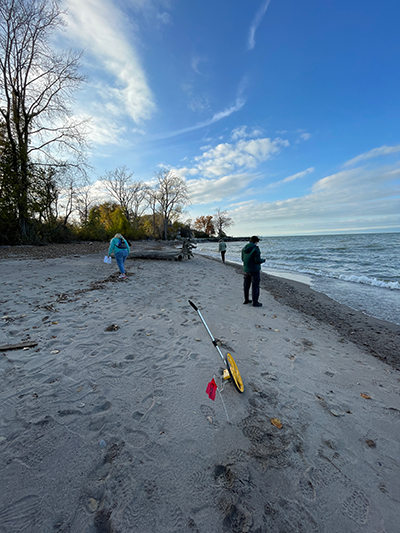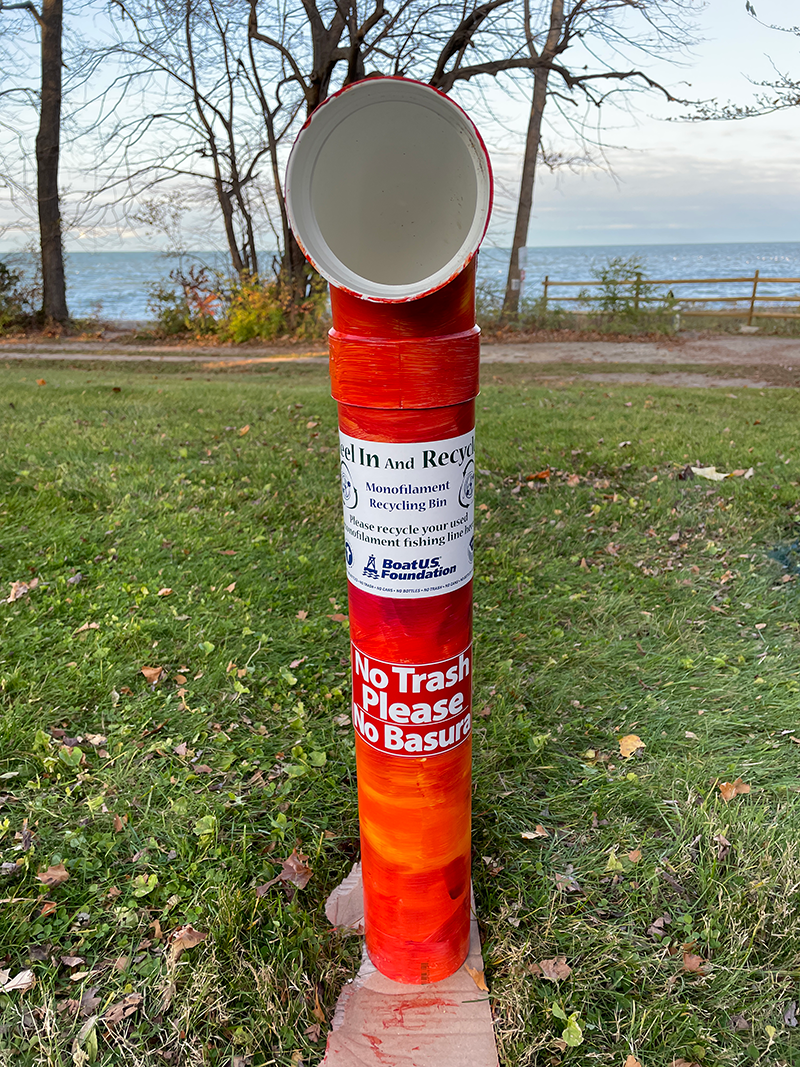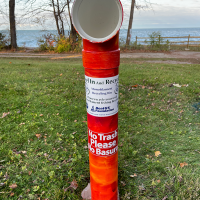NOAA Joins Plastic Reduction Workshop for Lake Erie Communities
NOV. 20, 2023 — On November 7th, the Great Lakes Regional Coordinator for NOAA’s Marine Debris Program, Haley Dalian, presented at the Plastic Reduction Strategies Workshop for Lake Erie Businesses and Communities. Hosted at Old Woman Creek National Estuarine Research Reserve (NERR) and State Nature Preserve in Huron, Ohio, the workshop gathered participants from diverse perspectives to connect and learn about the ever-present type of marine debris: plastic.

Dalian introduced NOAA’s Marine Debris Program, the role of its regional coordinators, and highlighted completed action items from the Great Lakes Marine Debris Action Plan, a five-year strategic plan powered by the commitments of 40 regional and binational action partners. Other presentations discussed single-use plastic behavior change initiatives, boater education through Ohio’s Clean Marinas program, macrodebris transportation through urban stormwater, certification opportunities as a Great Lakes Friendly Restaurant, plastic consciousness in state park sustainability plans, and more.
Participants closed out the workshop with two interactive activities. First, at an existing monitoring site on Lake Erie for NOAA’s Marine Debris Monitoring and Assessment Project (MDMAP), first-time users learned how to survey the beach using NOAA’s participatory science protocol. These shoreline monitoring efforts help us understand the amount, types, and sources of marine debris that are most common, where it accumulates, and if it is changing over time. Information collected from repeated surveys like those conducted at the workshop can be used to set targets for prevention and mitigation, and to measure success in reaching those targets.
Second, participants also decorated their own monofilament recycling bins to take home and place in their communities to encourage proper disposal of fishing line. The same characteristics that make monofilament fishing line popular with anglers (thin, strong, and almost invisible in the water) make it deadly to wildlife when fragments are discarded in the water, where they can entangle fish, birds, and other animals. Through the Berkley Conservation Institute’s program, more than nine million miles worth of fishing line has been recycled by anglers through bins such as these since 1990.
“The importance of this event and similar regional workshops to the health of Great Lakes’ communities cannot be overstated,” said Dalian. “Bringing stakeholders together to understand place-based debris and prioritize conservation of Lake Erie and its watersheds is what our work is all about.” Under its Policy and Management goal, this event also satisfied one Great Lakes Marine Debris Action Plan objective to host a series of marine debris workshops in the region over the five years, under the leadership of action partner Emily Kuzmick at Old Woman Creek NERR.
more images


